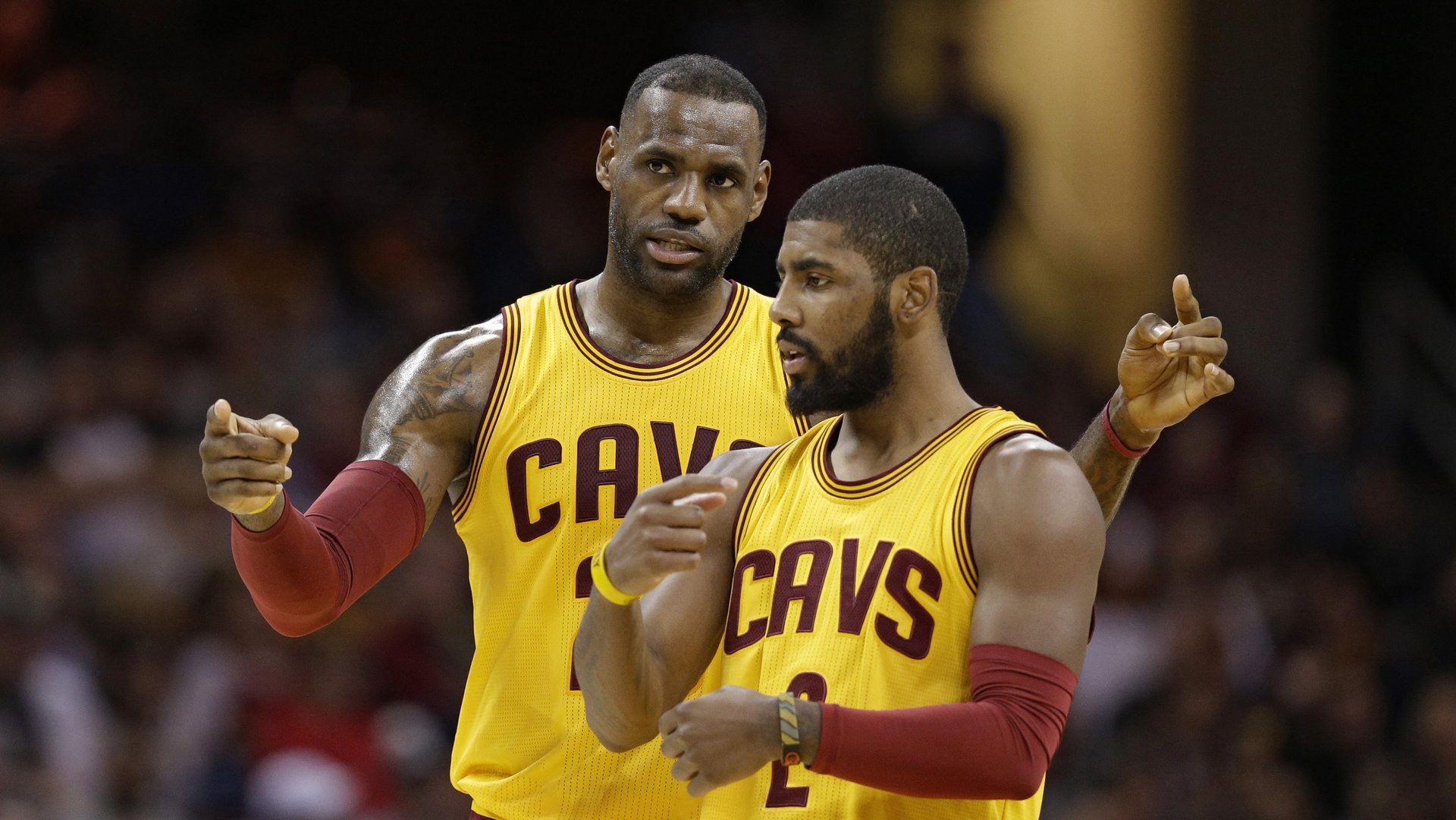Kyrie Irving’s resentment of LeBron James is a phenomenon called “the Disease of Me”
Kyrie Irving, the Cleveland Cavaliers’ fantastically talented point guard, shocked the sports world last week when it was revealed he asked the team to trade him.


Kyrie Irving, the Cleveland Cavaliers’ fantastically talented point guard, shocked the sports world last week when it was revealed he asked the team to trade him.
Irving, playing alongside basketball demigod LeBron James, is a key member of an elite NBA team, a squad that played for three consecutive championships, winning one. Despite all that success, reports now say Irving is tired of playing second fiddle to James and wants the responsibilities and perquisites that come with being the top dog—something that’s not going to happen playing in the shadow of one of the best players in history.
Irving’s restlessness isn’t unusual. It can afflict successful teams—be it in sports, business, or politics—when talented lieutenants grow weary of taking a back seat to the star, and hunger for the acclaim and money they feel is their due. Pat Riley, the legendary coach of the Knicks, Lakers and Heat, termed the affliction “the Disease of Me,” when a winning team’s cohesiveness is threatened by ego.
Riley laid out the symptoms in his 1993 book, The Winner Within. They include an inexperience with dealing with success, a sense of under-appreciation, and a paranoia of being cheated out of one’s due.
The Disease of Me (sometimes called the Disease of More) has torn apart great teams in sports—Shaquille O’Neal and Kobe Bryant famously feuded on the LA Lakers before O’Neal was traded—and elsewhere. David Letterman, chafing that Jay Leno was selected to replace Johnny Carson over him in 1991, bolted from NBC to CBS, breaking apart NBC’s lock on late-night US television. In the UK, Gordon Brown seethed with resentment when prime minister Tony Blair reneged on their secret deal to transfer power, creating a poisonous atmosphere atop the government inside the Labour Party for much of the 2000s.
In the business world, managing the egos of underlings attuned to corporate status symbols can demand a huge amount of a CEO’s attention. Barbarians at the Gate, the 1989 narrative about the buyout of RJR Nabisco, details the pains CEO Ross Johnson underwent to placate rivals and enemies, doling out perks like offices, country-club memberships, and the use of private jets to keep them happy and on-side.
In the case of Irving, the Cavaliers seemed blind to how he fumed at his second-tier status. Irving, the No. 1 draft pick overall in 2011, was the undisputed leader of the team before James rejoined after fours years in Miami. While Irving has admitted he benefitted from James’s tutelage, he resented James’ special treatment—like allowing James’ friends to fly on the team’s private jet—that was denied the other Cavaliers. It also reflects Irving’s sense of himself; as the Rookie of the Year, he once challenged the world’s best player to a game of one-on-one basketball—in front of the rest of the US national team and a camera crew:
Unlike many rivalries among teammates, Irving’s request to be traded isn’t about money. If he leaves Cleveland, he’ll forfeit a potential $200-plus million “super-max” contract only the Cavaliers can pay him, under the arcane rules of the NBA. Apparently Irving feels it’s worth the sacrifice for the chance to chart his own course.